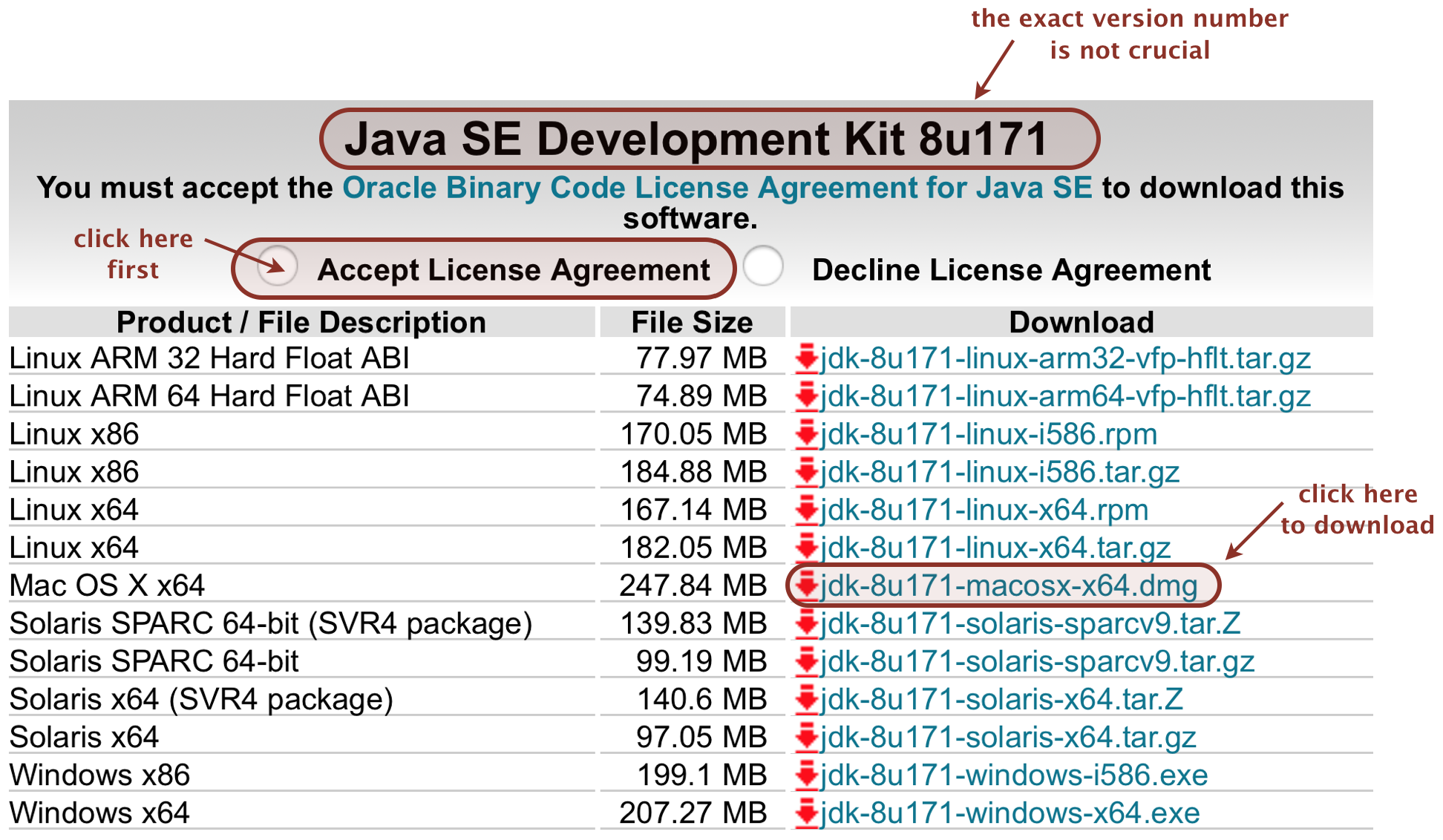
- #Apple java se 6 runtime install#
- #Apple java se 6 runtime code#
- #Apple java se 6 runtime license#
- #Apple java se 6 runtime mac#
#Apple java se 6 runtime install#
| | 18.ea.3 | open | | 18.ea.3-openĬhoose one and install it using the command sdk install java IDENTIFIER, i.e.: Vendor | Use | Version | Dist | Status | IdentifierĪzul Zulu | | 16.0.1 | zulu | | 16.0.1-zuluīellSoft | | 16.0.1 | librca | | 16.0.1-librca Set sdkman_rosetta2_compatible=false (see sdkman config)Īfter that, you will see a list of compatible with M1 JDKs: sdk list java You can install the Java JDK using sdkman (see sdkman install): vim. Note that Microsoft's been working on the OpenJDK branch of AArch64 (for ARM-based Windows 10) for a while, which goes back to: A lot of the hard work was already done. Microsoft's (yes, really) GitHub source repo for an early access OpenJDK16 build for macOS on AArch64.Donate to the effort or contribute a pull request if you want it to go faster. You didn't pay them, you have no contract, and they don't owe it to you.
#Apple java se 6 runtime code#
My assumption is that the ARM branch of the OpenJDK source code + the macOS bits that already exist for the macOS 圆4 release can be combined rather easily once someone with some familiarity with the OpenJDK source code has an M1-based macOS system to test it on, which should mean an adoptopenjdk macos-aarch64 release should be here within the month.īut, open source.
#Apple java se 6 runtime mac#
But, it's an open source effort, so if you're anxious, by all means, read up and contribute :)Īpple has not given any details on this architecture whatsoever until November 10th 2020, unless you bought a development kit box for it (a Mac Mini with an A14 chip, which isn't an M1 chip, but close enough I guess), and signed a big NDA.Īs a rule, open source projects will run as fast as possible in the opposite direction if you wave an NDA around, so if you dislike this state of affairs, I don't think it's wise to complain to adoptopenjdk or other packagers and open source projects about it :)įortunately, now it's out, and an NDA is no longer required. That is to say: It should not be a herculean effort to create an adoptopenjdk release that runs on M1s natively, so presumably, it will happen.
#Apple java se 6 runtime license#
So: It's not there yet, but note that JDKs for ARM have been available for more than decade, and whilst JDK 15 has dropped support for a bunch of exotic OS/architecture combinations (such as Solaris), ARM development has always remained at least partially relevant (even if so far it's mostly an Oracle commercial license offering). That (probably) won't run on macOS on M1 hardware, but that's 95% of the work already done.

If you instead leave Operation System on 'any', you'll note aarch64 is in there, and this gets you to a Linux release for ARM processors. Possibly, as Apple no doubt has a bunch of extensions built into their M1 designs, and Apple gets its own. This was the stupidest thing Oracle could do with Java.On this page: AdoptOpenJDK Latest Releases you can select 'macOS' from the 'Operating System' dropdown, and then from 'Architecture', it's currently only 圆4, but soonish there should be AArch64 or ARM64 (those are usually the shortcodes for 64-bit ARM). Oracle specifically BROKE the Java sandbox, allowing Java to interact directly with computer systems. Why is Java over the Internet now so dangerous? Thank Oracle, who obtained Java when they bought Sun Microsystems. Check up on their reputation and verify they are NOT Trojans. So avoid running mysterious Java apps you know nothing about. Trojan horse Java applications are possible. Just be sure you run Java apps, off the Internet, from reliable developers. NOTE: Running Java applications off the Internet is not typically a problem. But for the sake of simplicity and the ability to reinstate the Java Plug-In whenever you may want to actually use it on the Internet, I'd leave everything else in place.

There are other Java bits and pieces you could trash. Java now cannot run in them over the Internet, which is where Java is particularly dangerous. I have them in a folder labeled "Internet Plug-ins (disabled)" inside the Library folder.ģ) QUIT and restart all your web browsers. I advise that you store these files somewhere, just in case you want to use them later for some odd purpose. Yes, that includes Apple's own alias file "ugin".

A quick and simple way to DISABLE running JAVA over the Internet (if you have Admin privileges):Ģ) Remove from this directory everything listed as 'Java'.


 0 kommentar(er)
0 kommentar(er)
